- TECHSWU
- Posts
- TECHSWU #39
TECHSWU #39
Welcome to TECHSWU, your go-to destination for all things tech that matter in your daily life! From gadgets to software, we cover it all with a focus on what's relevant and usable now. Tune in to our YouTube channel, daily newsletter, and podcast for the latest updates and insights on the tech you use every day. Stay connected with TECHSWU and stay ahead in the world of technology


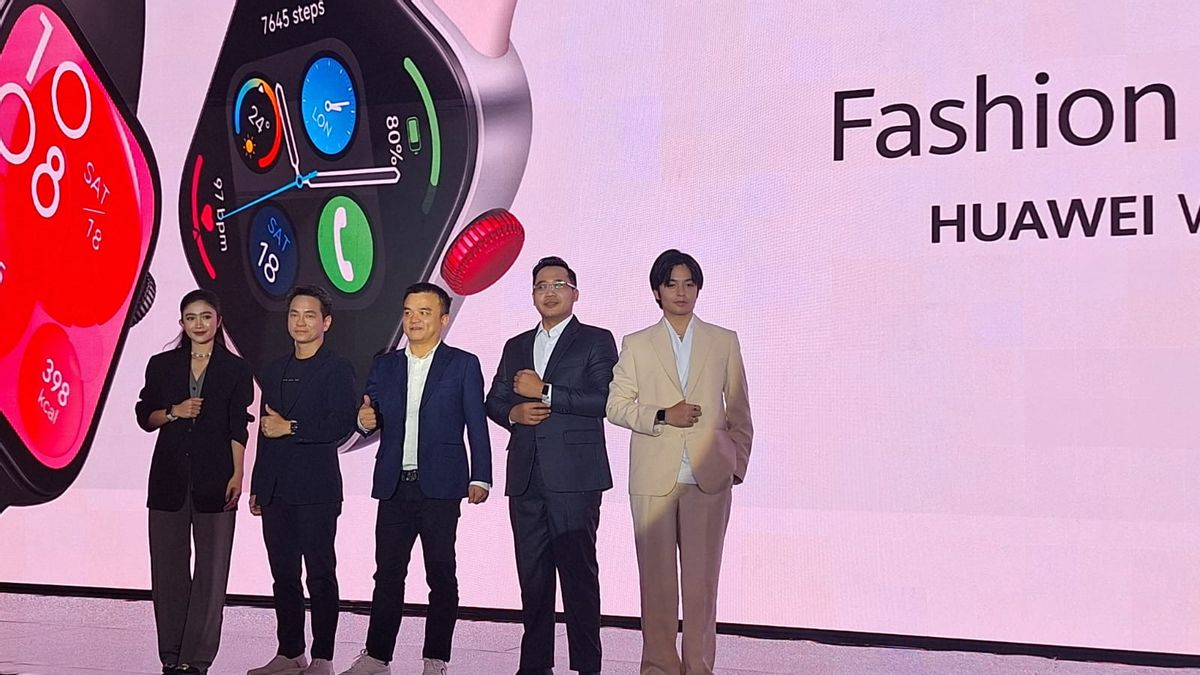
Huawei has launched the HUAWEI WATCH FIT 3, its first square-shaped smartwatch with a thin and lightweight design. Some highlights of the smartwatch include a 1.82-inch AMOLED screen, Huawei TruSleep 4.0 scientific sleep monitoring, calorimetric monitoring features, over 100 sports modes, and more than 600 fitness training guidance options. The smartwatch is designed to promote a healthy and active lifestyle. It has a long battery life of up to 10 days and fast charging capability. Other features include a quick reply WhatsApp feature, Bluetooth call, and service 2.0 widget to stay connected. The HUAWEI WATCH FIT 3 is compatible with HarmonyOS, iOS, and Android. It is available in various fluoroelastomer straps and is priced starting from IDR 1,999,000.

Waveshare has released a development board called the BG95-M3 Zero, which is based on Quectel's BG95-M3 low-power wide-area module. The board is designed in the form factor of a Raspberry Pi Zero and is powered by a MicroPython fork called QuecPython. Some highlights of the board include:
• The BG95-M3 module supports LTE Cat M1/LTE Cat NB2/EGPRS cellular technologies and is 3GPP Rel-14 compliant.
• The module offers a maximum data rate of 588kbps downlink and 1,119kbps uplink under LTE Cat M1.
• The board features a compact design with low-power RAM and flash memories to optimize power consumption.
• It includes global cellular connectivity, as well as a built-in GPS receiver with support for multiple satellite constellations.
• The board closely mimics the design of the Raspberry Pi Zero, with a 40-pin GPIO header and a single USB Type-C connector for data and power.
The board's firmware, QuecPython, is designed to be accessible for beginners in cellular module development, offering a simplified programming language. The BG95-M3 Zero development board is available for purchase for $54.99 from Waveshare's store.

Tech companies are increasingly integrating AI into various gadgets, including wireless earbuds. Nothing is one such company that has integrated ChatGPT as a voice assistant into its Ear wireless earbuds, allowing users to control functions and launch queries with a simple squeeze gesture. Although the integration has been successful in replacing regular voice assistants, there have been some technical glitches and concerns over privacy. However, the appeal of wireless earbuds as a less intrusive form factor for AI gadgets cannot be denied. Meta and Apple are reportedly also interested in creating wireless earbuds with AI capabilities, with the former looking to add cameras for computer vision capabilities and the latter considering integrating Siri with advanced AI. The future of AI wireless earbuds remains uncertain, but they may become a popular and more comfortable alternative to other AI-powered gadgets.



Marvel Studios and ILM Immersive have announced the release of "What If...? – An Immersive Story," the first-ever interactive Disney+ Original story. The experience will be available on Apple Vision Pro as a free app for a limited time, allowing fans to step into the leading role of an hour-long, narrative-driven journey. Some highlights from the article include:
• The interactive experience allows fans to meet variants from across the Multiverse and make reality-defining choices.
• Fans will have the opportunity to cast mystic spells, harness the power of the Infinity Stones, and join allies in epic battles.
• The experience is connected to the Disney+ Original animated series "What If...?" and features versions of fan-favorite characters like Thanos and Hela.
• Marvel Studios and ILM Immersive are pushing the boundaries of technology to create a completely new way for fans to experience the Marvel Universe.
• The experience utilizes Apple Vision Pro's spatial computing capabilities to create a technologically advanced and immersive environment.
• Fans will use their hands and eyes to interact with stunning visuals and spatial audio, crossing between mixed and virtual reality.
• The experience is directed by Dave Bushore and produced by Shereif M. Fattouh, with music by Laura Karpman.
• The release of "What If...? – An Immersive Story" demonstrates Marvel's commitment to experimenting and innovating in storytelling.
Overall, "What If...? – An Immersive Story" offers an exciting and interactive way for Marvel fans to become the hero and save the fate of reality.

Mastercard is integrating artificial intelligence into its fraud-prediction technology to identify compromised cards faster, allowing banks to replace them before they are used by criminals. The company's latest software update will utilize pattern recognition and contextual information, such as geography, time, and addresses, to locate compromised credit or debit cards. Unlike humans, artificial intelligence can comb through vast amounts of data more quickly and efficiently, identifying potential breaches and protecting cardholders. By proactively replacing compromised cards, Mastercard aims to minimize disruptions for customers and reduce the risk of fraud. This development comes as Mastercard's competitor, Visa, also explores ways to make physical cards and traditional card numbers less relevant, adapting to a changing payment landscape.

Microsoft has announced its new Surface Copilot+ PC lineup, featuring faster devices than the new M3 MacBooks. The lineup includes two main devices: the Surface Laptop Copilot+ PC and the Surface Pro Copilot+ PC. Preorders are now available, and there's an amazing deal that includes a free 50-inch 4K Smart TV when you preorder from Best Buy. The Surface Laptop Copilot+ PC has a brand-new design with thin edges and a touchpad that gives feedback. It comes in 13.8-inch and 15-inch display options, both with 120Hz refresh rates and long battery lives. The Surface Pro Copilot+ PC is a 2-in-1 device with a 13-inch OLED screen, ultrawide camera, and the ability to replace parts. The preorder deal includes a free 50-inch 4K Fire TV when you preorder from Best Buy as a member of their My Best Buy Plus or My Best Buy Total programs. The new Surface Copilot+ PCs are packed with powerful features and are perfect for school, gaming, and watching videos. Don't miss out on the chance to get a free 4K TV and enjoy the latest from Microsoft.


Actress Scarlett Johansson has accused OpenAI of copying her voice for its ChatGPT system without her permission. Johansson, who famously voiced an AI assistant in the film 'Her', stated that the "Sky" voice on ChatGPT sounds eerily similar to her own voice. She claims that Sam Altman, CEO of OpenAI, had asked her to be the voice of the AI system, but when she declined, he copied her voice anyway. Johansson's legal counsel has sent two letters to OpenAI asking for transparency about the voice creation process and the company has agreed to take down the "Sky" voice. OpenAI denies that the voice is Johansson's and claims it was never intended to resemble hers. This dispute comes at a difficult time for OpenAI, which is also facing other legal challenges related to the use of copyrighted materials. SAG-AFTRA, a union representing television and radio artists, has shown support for Johansson and her concerns over unauthorized replication of voices and likenesses.

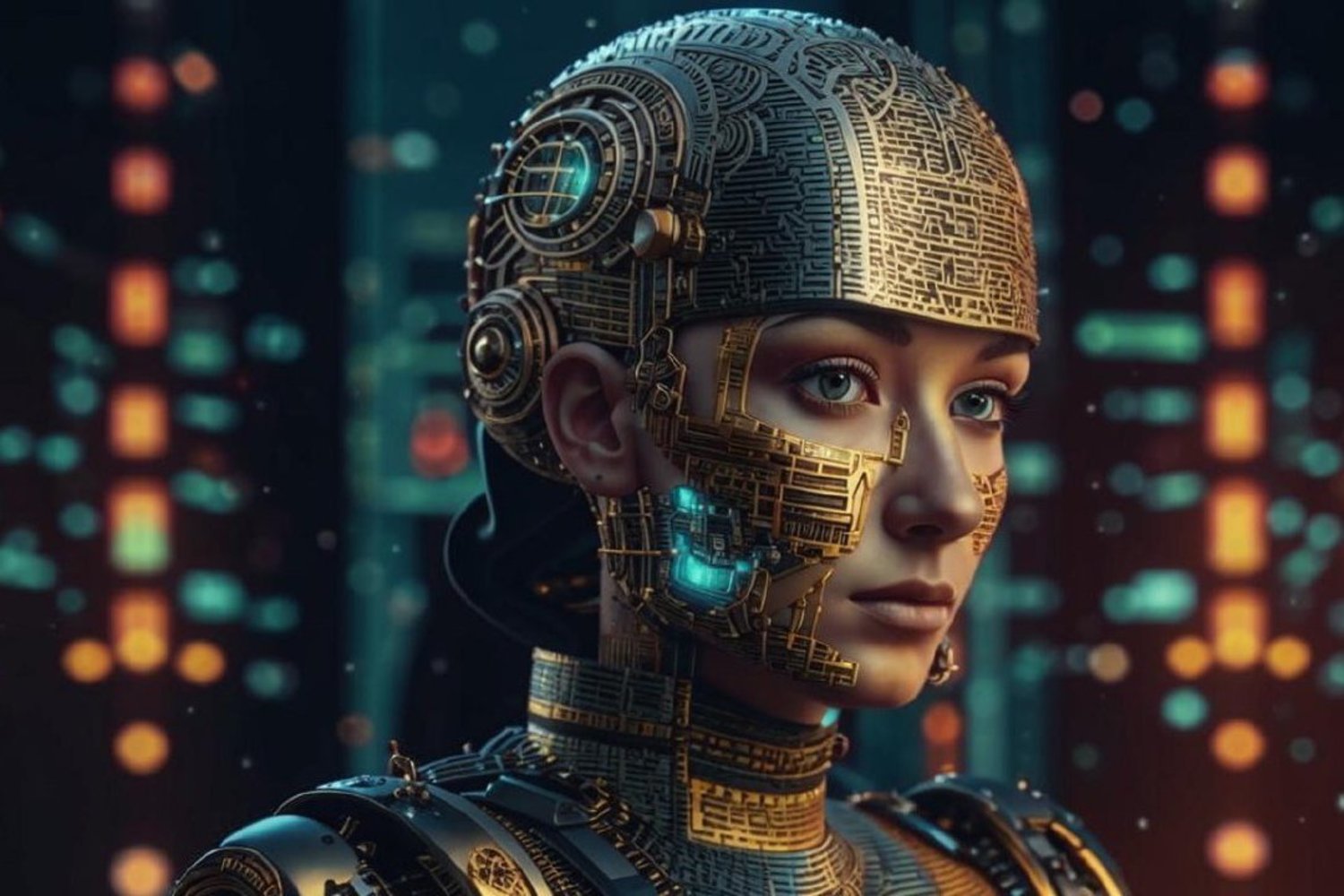
The State Duma in Russia is considering a bill to label content produced by neural networks in order to protect against the spread of unverified information. The idea was first proposed a year ago, and the deputies are now studying the legislative experiences of other countries and consulting with experts. The aim is to address the difficulty in distinguishing between real and unreal content, as well as to combat the potential danger of misinformation. The US has already implemented additional security measures in the field of AI, including the development of a watermark system to identify AI-generated content. Other countries, such as Japan and South Korea, are also working on regulations for AI. However, the implementation of labelling is challenging, as professionally created AI content is currently indistinguishable from real content. The government should instead focus on raising awareness of AI and promoting responsibility among developers.
Freebeat, an AI-powered fitness platform, aims to combat content fatigue in digital fitness by revolutionizing the workout experience with personalized and engaging features. Some highlights from the article include:
• Freebeat utilizes convolutional neural networks and AI-driven models to understand the energy flow of music and create invigorating and personalized workout sessions.
• The platform seamlessly integrates personal playlists from popular music streaming platforms, allowing workouts to be perfectly synchronized with the rhythm and emotion of each track.
• Freebeat offers personalized motivational coaching through AI-generated speeches that align with the mood of the music, increasing motivation and enjoyment during workouts.
• The platform incorporates gamification elements to make workouts more enjoyable and dynamic, encouraging users to push their limits and achieve their fitness goals.
• Users can access the interactive fitness experience anywhere through the freebeat app on their phone, which uses advanced motion tracking technology to capture and simulate cycling activity in real-time.
• Freebeat's innovative AI technology offers personalized workouts, interactive coaching, gamification, and real-time feedback, ensuring users remain engaged and motivated to pursue their fitness goals.
With its cutting-edge AI technology, freebeat aims to provide a transformative fitness journey tailored to individual preferences.
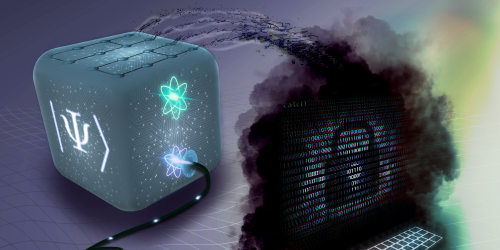
Researchers from Oxford University have demonstrated a "blind" protocol for secure cloud-based quantum computing using trapped ions. The protocol allows a client to hide their data and programs while performing computations on a remote quantum computer. The team used two trapped ions, a strontium ion and a calcium ion, to create a quantum cloud system. The network qubit sends a polarization-dependent photon to the client, which allows the client to steer the state of the network qubit through measurements of the photon's state. The client then sends instructions to the server for further processing of the network qubit's information. The protocol also incorporates one-time-pad encryption to ensure the security of the data. The team's demonstration shows that blind quantum computing could be scalable and secure, paving the way for a quantum internet that ensures privacy and verifiability.

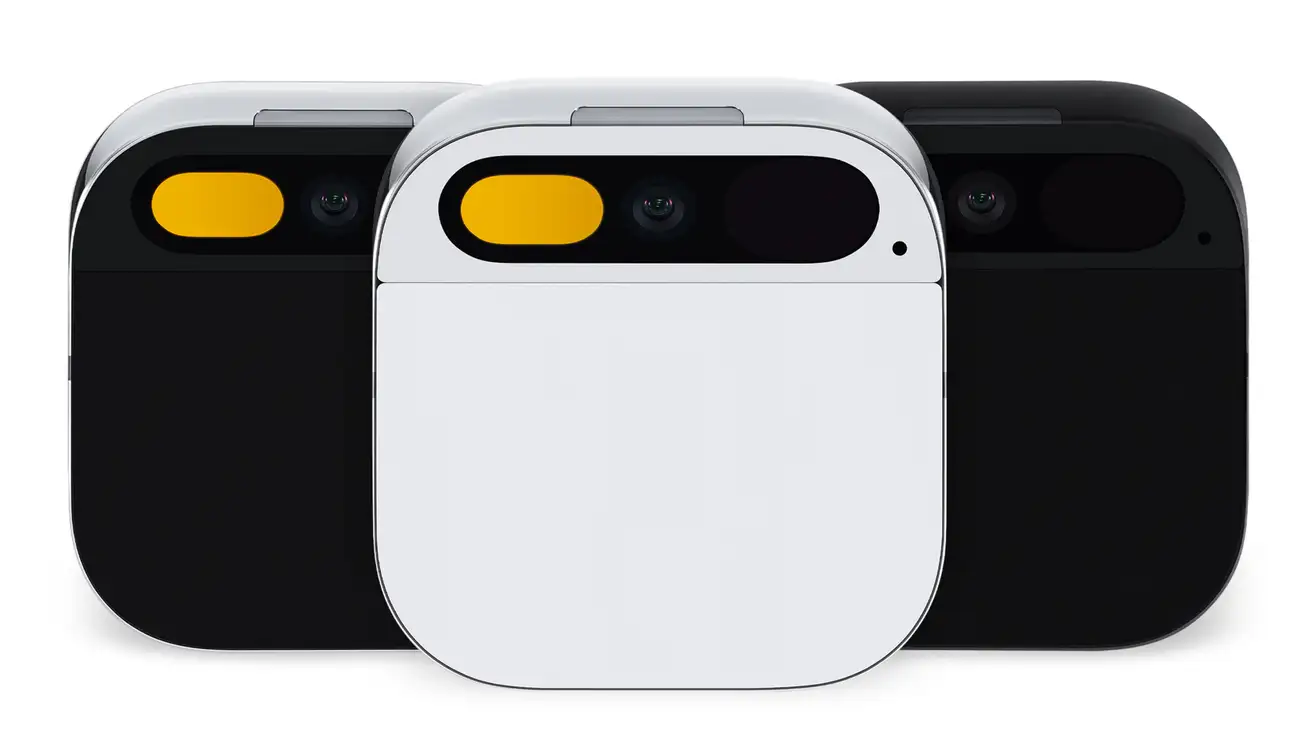
AI startup Humane Inc. is considering a sale of its business, with a price tag of $750 million to $1 billion, following negative reviews of its wearable AI device, the AI Pin. The company, founded by former Apple employees, raised $230 million from investors and was valued at $850 million last year. However, the AI Pin's launch received criticism for issues with functionality, user interface, reliability, compatibility, and cost. The company is working with a financial adviser to assist with the sale process, although a deal is not certain at this time. Humane faces competition from other companies ramping up their AI hardware efforts, and for it to succeed in the market, significant improvements in connectivity, user experience, and cloud services will be necessary.

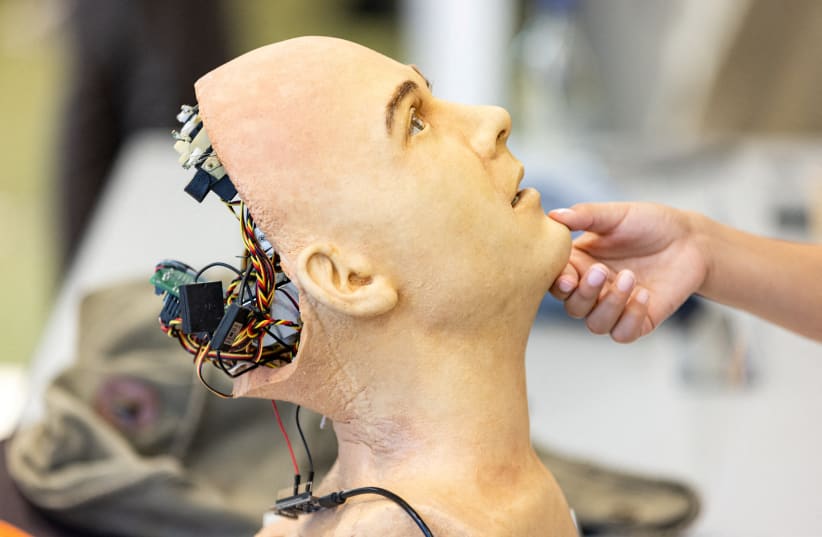
A new study from Washington State University suggests that the fear of robots taking human jobs, known as "robophobia," could worsen labor shortages in the hotel and restaurant industries. With restrictions on foreign workers and reluctance among workers during times of conflict, hotel owners have turned to robots to fill roles that are difficult to hire for, such as cooks and cleaning workers. However, the study found that robophobia increased job insecurity and stress among employees, leading to greater intentions to quit. These effects were more pronounced for employees with actual experience working with robotic technology. The ongoing labor shortage in the hospitality industry has prompted some employers to turn to robotics, but the fear of losing jobs to robots could create a negative feedback loop and further exacerbate the shortage. The study recommends that employers communicate the benefits and limitations of technology and emphasize the role that human workers play in conjunction with robots.
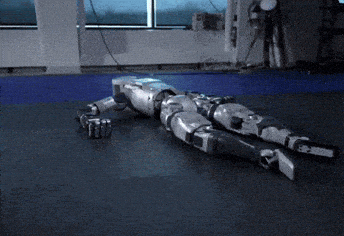

Are you an Apple enthusiast? Well, get ready for some exciting news! Apple is rumored to be working on a groundbreaking redesign for their iPhone 17 model. If you thought the iPhone X stunned the world with its sleek and modern look, just wait until you see what's in store for the future.
Here are some highlights from the article:
• Apple is planning a major redesign for one of its iPhone 17 models next year.
• The new model could feature a significant change in design, reminiscent of the iconic iPhone X.
• Apple is known for pushing the boundaries of innovation, so this redesign is bound to be revolutionary.
• The new iPhone 17 model could feature an even sleeker and more modern design, captivating users worldwide.
• Apple's dedication to aesthetics and user experience has made them a leader in the tech industry, and this redesign is sure to reinforce their position.
Now you have even more reason to eagerly await the release of the iPhone 17. Get ready to enter the future of mobile technology in style with Apple's cutting-edge design.

In this article, Ian Newbury, Business Development Director at BT Wholesale, discusses how small cells are empowering local governments to build smarter cities. Here are the key points:
• Small cells are mobile radio cells that provide greater network coverage and connectivity in densely populated areas.
• Small cells can support greener technology solutions for cities and help tackle digital inequality.
• BT has worked with Leeds City Council to make it the largest gigabit and 5G-capable city outside London, addressing economic needs and delivering on sustainability promises.
• Local authorities and mobile network operators (MNOs) need to work together to boost connectivity, such as through shared network models.
• BT Wholesale works with local authorities to reuse existing infrastructure, avoiding unnecessary expense and carbon footprint.
• Small cell networks can help pave the way for smart cities by providing the necessary infrastructure and connectivity for Internet of Things (IoT) technology.
• Smart cities enhance communities socially, improve sustainability, and increase safety.
• BT Wholesale is working with MNOs, local authorities, and industry partners to better deploy small cell technology across the UK.

Robotics is a field that requires individuals to possess a diverse set of skills in order to excel. The top 10 skills necessary for success in robotics are as follows:
• Complex problem-solving: Robotics professionals must be able to efficiently solve complex problems, whether it's designing algorithms or troubleshooting hardware issues.
• Adaptability and flexibility: The field of robotics is constantly evolving, so individuals must be adaptable and willing to embrace new technologies and methodologies.
• Mathematics: A solid foundation in mathematics, including algebra, calculus, and geometry, is essential for understanding the principles underlying robotics.
• Proficiency in programming languages: Programming is at the core of robotics, so individuals must be proficient in languages like Python in order to develop software applications and control algorithms.
• Systems thinking: Robotics involves the integration of multiple components, so having the ability to understand the interactions between different elements within a system is crucial.
• Artificial intelligence basics: Understanding the basics of AI, including machine learning and computer vision, is important for developing advanced robotic systems.
• Efficient solution design: Efficiency is paramount in robotics, so individuals must have strong design skills to develop solutions that meet performance requirements.
• Computer and software skills: Proficiency in computer and software skills, such as software development and system integration, is crucial for building robust robotic systems.
• Familiarity with sensors and actuators: Robotics professionals must have a deep understanding of various sensor technologies and actuators in order to design responsive and adaptive systems.
• Human-robot interaction: With robots increasingly interacting with humans, it's important for professionals to understand how to design systems that have seamless and intuitive interactions.
Overall, possessing these skills will greatly contribute to success in the field of robotics.
